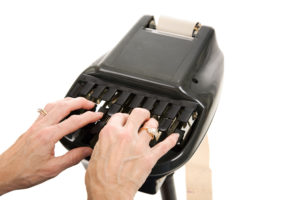Contents
BANKRUPTCY 2004 EXAMINATION: A DEPOSITION BY ANY OTHER NAME …

A 2004 examination in bankruptcy is simply a deposition in which testimony regarding your financial affairs is taken usually by an attorney for a creditor or the United States Trustee.
Generally, in a Chapter 7 or Chapter 13 bankruptcy proceeding, the Debtor is required to appear and answer questions regarding their assets, debts, and financial condition only once. This hearing is the always-required and so-called 341 Meeting of Creditors.
However, parties with an interest in the case, such as creditors or the Chapter 7 or 13 Trustee or the US Trustee, do have the right to demand the debtor appear for a further examination in which more detailed questioning can occur at greater length and for which documentation may be demanded by the examining party.
This is the 2004 Examination, named after the Federal Bankruptcy Rule of Procedure which allows it to occur.
WHAT HAPPENS IN A 2004 EXAMINATION?
The 2004 Examination is basically a deposition, in which the debtor, his or her attorney (if one has been retained for the bankruptcy proceeding), appear at a designated location—usually the office of the examiner’s counsel, though it needn’t be—to answer questions. There is generally a court reporter present, though this is at the discretion of the examiner.
The court reporter will verify identification and will “swear” the debtor in, obliging the debtor to answer truthfully under penalty of perjury.
The length of the 2004 Exam must be “reasonable,” but there is no statutory limit. It could take 30 minutes, or it could take 3 or 4 hours, depending. This is generally something negotiated between the examiners’ counsel and your bankruptcy attorney ahead of time.
The examiner will then proceed to ask whatever questions of the debtor are desired, and the debtor is obliged to answer them.
The Federal Rules of Evidence do not apply at a 2004 Examination, just as they do not in a 341 Meeting of Creditors hearing, and so objections to questions posed premised on the Rules of Evidence, such as “hearsay,” and Constitutional objections, such as the right to refuse to answer under the Fifth Amendment, are not permitted, though they may be noted for the record.
The questions are asked; the debtor answer the questions; and the examiner then utilizes the information provided as a basis for proceeding with an Adversary Proceeding to deny the bankruptcy discharge, the dischargeability of a debt, or—does nothing at all, if the information provided does not support any such claim.
WHAT QUESTIONS MAY BE ASKED AT A 2004 EXAMINATION?
The examiner at a 2004 examination has a very wide scope of questioning available to him or her. Questions regarding the statements you made in your petition; your income; your expenses; your assets; your history of transactions or conveyances; your business ownership; your financial and other activities; anything related to your assets or financial condition may be asked.
Likewise, a debtor heading into a 2004 examination can expect to be required by subpoena to produce bank statements, tax returns, deeds, titles, contracts, safe deposit box content descriptions, anything that may be relevant to the question of the debtor’s financial condition and the question of whether or not the debtor engaged in some level of fraud which might entitle the examiner to relief of some sort in whatever action may be under consideration.
The documentation demand should not be a “fishing-expedition,” but, at the same time, the scope is very wide, and it is rare that a Bankruptcy Judge will deny a party-in-interest’s request for a 2004 examination.
HOW DOES THE 2004 EXAMINATION HAPPEN?
Rule 2004 of the Bankruptcy Rules of Procedure requires that the party-in-interest request the examination “by motion,” but any attorney, as an officer of the court, can compel the attendance of the debtor and the production of documents by subpoena signed by the attorney, on behalf of the court.
Generally, here in the Eastern District of Michigan, a creditor or other party wishing to schedule a 2004 Examination will simply contact the debtor’s attorney to discuss a mutually convenient scheduling and then issue the subpoena with the documentation request once the particulars are agreed upon.
If the debtor or his or her attorney is non-responsive to these discussion, the party wishing to examine may file a motion and will usually garner the court’s approval without a great deal of latitude available to the debtor to argue against the 2004 Examination.
THE BANKRUPTCY 2004 EXAMINATION: THE BOTTOM LINE
The bottom line is that you need to retain an experienced attorney to represent you are considering filing for bankruptcy for this very reason. It’s one thing to manage to complete and file the initial petition forms on your own without an experienced bankruptcy attorney assisting you, but—did you do it properly? Did you disclose everything that needed to be disclosed in the completion and filing, under penalty of perjury? What do you do if a 2004 Examination is scheduled and you do not have an attorney assisting you?
You are at the mercy of the examining party, and, if you did not complete your petition properly, in danger of having your discharge denied and your debt not discharged as a penalty for an allegation of fraud that you may or may not have really committed.
Attorney Walter Metzen will ensure your schedules and petition are completed properly and that you have as little to fear in a 2004 Examination, should one occur, as your circumstances allow.
Contact The Law Offices of Walter Metzen & Associates now to schedule a no-cost, no-obligation initial consultation.




